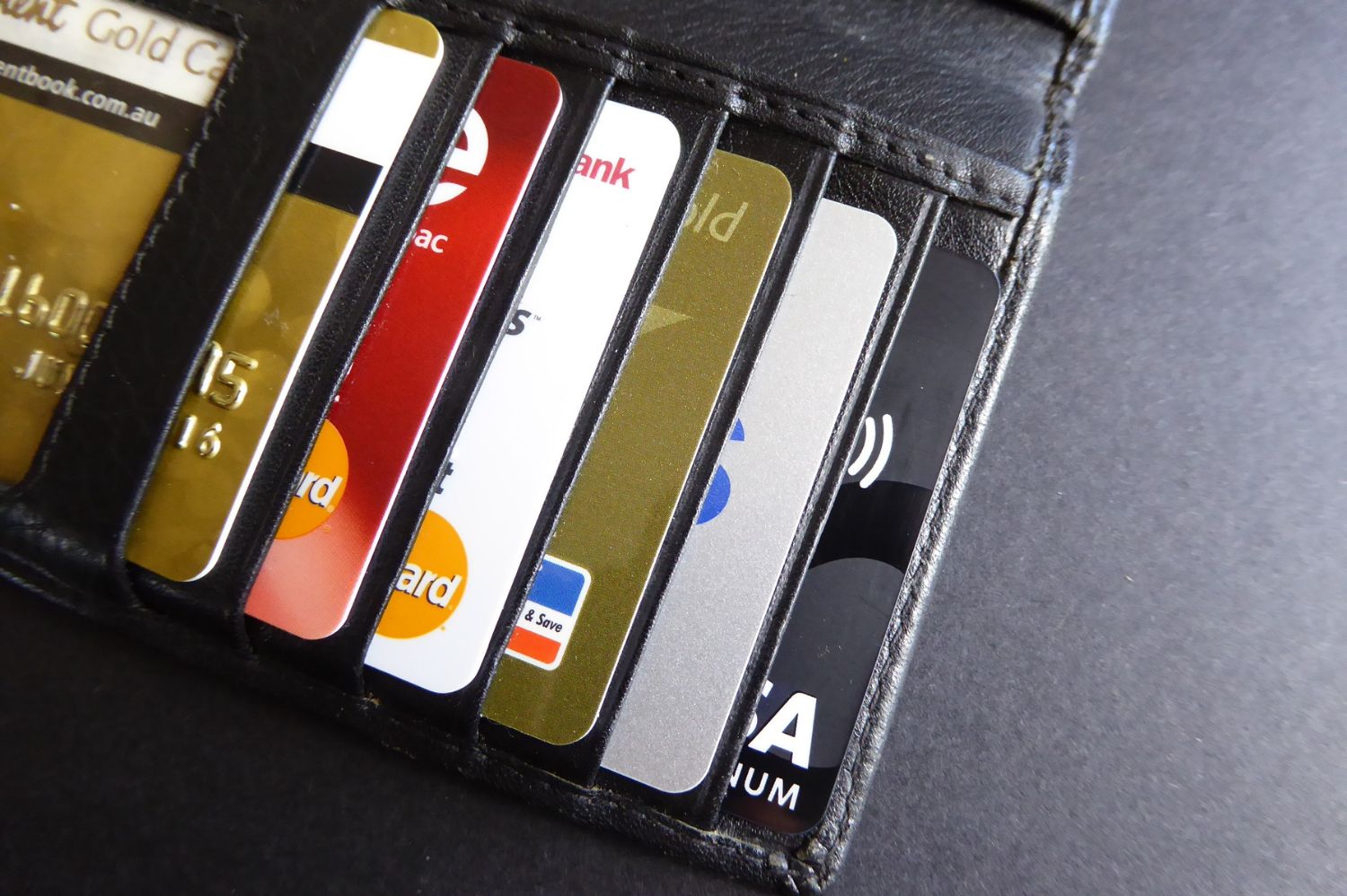Unveiling the Secrets to Selecting a Winning Credit Card

Understanding the Basics of Credit Cards
Credit cards are essentially short-term loans provided by financial institutions. They offer a convenient means to make purchases and manage expenses, but they carry specific terms and conditions related to fees, interest rates, and repayment periods. Using a credit card wisely involves understanding these components and how they affect your financial health. A good understanding of credit cards can empower you to make informed decisions that positively impact your finances.
Cards come in various forms and offer different benefits. Some cards are designed to offer rewards on purchases, while others help build credit or provide special perks like travel benefits. Knowing the features and fees associated with each type of card is essential to making a choice that suits your needs.
The Importance of Choosing the Right Card
Selecting the right credit card is a critical decision. The wrong card can lead to unnecessary fees and interest charges, which can strain your finances. Conversely, the right card can offer substantial benefits, such as rewards, lower interest rates, and added financial flexibility.
When choosing a credit card, consider your spending habits and financial goals. For example, if you travel frequently, a travel rewards card that offers airline miles or hotel points might be beneficial. On the other hand, if you’re looking to build or repair your credit, a secured credit card could be a better option.
Evaluating important factors such as annual fees, APR (Annual Percentage Rate), and other charges is paramount. Choosing a card without understanding these could result in higher costs that overshadow any potential benefits. Source: Complete Guide to Choosing the Best Credit Card
- Annual Fees: Some cards charge annual fees for the benefits they offer. Ensure that these fees are justified by the rewards and perks you receive.
- APR: The interest rate can significantly impact your finances. A lower APR means you pay less interest on any unpaid balance.
- Late Fees: Be aware of the charges for late payments as they can add up quickly and negatively impact your credit score.
Choosing the right credit card involves more than just looking at the rewards. It requires a thorough evaluation of fees, benefits, and how well the card aligns with your lifestyle and financial goals. By carefully analyzing these factors, you can choose a card that not only meets your needs but also enhances your financial health.
Evaluating Fees and Charges
Key Fees to Watch Out For
Choosing the right credit card requires a keen eye on the various fees that come with it. Three crucial fees to consider are annual fees, APR (Annual Percentage Rate), and late fees. Each of these can significantly affect your wallet and overall financial health.
Annual Fees
Annual fees are charges that some financial institutions levy for simply having the card. While some cards offer no annual fee, others could charge anywhere from $50 to $500 or more. Assess whether the benefits of the card justify the cost of the annual fee. Cards with higher annual fees often come with perks like travel insurance, airport lounge access, or more significant rewards. Make sure these perks are valuable to you before committing.
APR (Interest Rates)
APR includes all the interest and fees you’d incur over a year for using the card. Lower APRs are better if you carry a balance because they minimize the interest you’ll pay. Be careful, as some cards offer low introductory rates that spike dramatically after a few months. Comparing different cards’ APRs can save you money, especially if you don’t always pay off the balance in full.
Late Fees
Late fees are penalties charged for not making the minimum payment by the due date. These fees can range from $25 to $40 or more, and they add up quickly. Repeated late payments can also lead to higher APRs, further increasing your debt burden.
How Fees Impact Your Financial Health and Card Choice
Understanding the impact of these fees is vital in making an informed choice. High fees can erode any rewards or benefits you gain from your credit card, leaving you financially strained.
- Annual Fees: Evaluate if the benefits, like rewards points or travel perks, outweigh the cost.
- Interest Rates: A high APR can add significant costs if you carry a balance. A lower APR is crucial for long-term financial health.
- Late Fees: Building a habit of timely payments helps you avoid these costly penalties and keeps your credit score in good health.
Knowing these fees can help you select a card that aligns with your financial goals and spending habits. Next, we’ll dive into the types of rewards cards offer and how to match them with your lifestyle. “`
Rewards and Benefits
Types of Rewards
When it comes to choosing a credit card, the types of rewards available often play a significant role. Cards may offer points, miles, or cashback as part of their reward programs. Here’s a quick breakdown:
- Points: Points can be accumulated and redeemed for various items, such as merchandise, gift cards, or experiences.
- Miles: Perfect for travelers, these rewards can be used to book flights or obtain travel-related perks.
- Cashback: A straightforward reward where a percentage of your spending is returned to you as cash.
Understanding these categories helps you make informed choices based on your personal preferences and spending habits. For example, if you travel frequently, miles might be more valuable than cashback.
Matching Rewards with Your Lifestyle
Choosing rewards that align with your lifestyle can maximize the benefit you derive from your credit card. Here are some considerations:
- Travel Enthusiast: Choose cards that offer travel-related rewards like miles, travel insurance, and access to airport lounges.
- Daily Spender: Cashback rewards might be ideal, especially if they offer higher percentages for everyday purchases.
- Shopper: Points-based reward cards can be beneficial if you enjoy redeeming rewards for merchandise or gift cards.
When evaluating rewards, also consider the categories where you spend the most. Some cards offer higher rewards for specific types of purchases, such as dining or groceries. By aligning your credit card rewards with your lifestyle, you’ll get the most value out of your spending. Always evaluate any associated fees to see if the rewards justify those costs. Remember, rewards are only beneficial if they add value to your specific spending habits and financial goals.
Sources:
Source: Guia Completo para Escolher o Melhor Cartão de Crédito
Source: Example Website
Specialized Credit Cards
Travel Cards for Frequent Flyers
If you’re a jet-setter, a travel credit card can be your best travel companion. Travel cards are designed to make your journeys more rewarding and less stressful. Their benefits often include:
- Travel Insurance: Coverage for trip cancellations, interruptions, and medical emergencies.
- Airport Lounge Access: Enjoy a comfortable wait with amenities like food, Wi-Fi, and relaxation areas.
- No Foreign Transaction Fees: Save money by not paying extra on purchases made abroad.
- Miles Rewards: Earn miles for every dollar spent, redeemable for flights, hotel stays, and other travel-related expenses.
Before signing up, always check the annual fee and ensure the benefits outweigh the costs. Some high-end travel cards may have hefty fees but justify them with extensive perks. Evaluate whether the card’s features align with your travel habits and needs to achieve the best value.
Student Cards: Financial Lifelines for College Students
For those navigating the world of credit for the first time, student credit cards offer a solid foundation. These cards typically have:
- Lower Fees: Usually no annual fees and manageable interest rates.
- Targeted Rewards: Cashback on common student expenses like groceries and public transportation.
- Credit Building Tools: Resources to educate students on responsible credit use, plus features that report positive payment history to credit bureaus.
Student cards help build your credit history, setting you up for future financial stability. Look for cards that provide educational resources, like budgeting tools or credit score trackers, which are valuable for young adults managing their finances.
Choosing the right specialized credit card involves aligning the card’s rewards and benefits with your personal needs, whether you’re a frequent traveler or a student. With many options available, ensure you assess the overall value and not just the appealing perks.
Credit Card Approval and Usage
Understanding Approval Criteria
Getting approved for a credit card hinges on several factors, the most critical being your credit history and income. Your credit history serves as a record of how reliably you have managed debt in the past. It includes details like payment history, credit utilization, length of credit history, and any derogatory marks like late payments or bankruptcies. Lenders scrutinize your credit report to assess your creditworthiness, so maintaining a good credit score is crucial.
Income, on the other hand, demonstrates your ability to pay back borrowed money. Card issuers require proof of income to ensure you have the financial capacity to meet payment obligations. In addition to these, some issuers may also consider your employment status and existing debt obligations.
Best Practices for Responsible Credit Card Use
Paying Bills on Time
The cornerstone of responsible credit card use is timely bill payments. Late payments not only attract hefty fees but also damage your credit score. Setting up automatic payments or reminders can help you stay on track.
Keeping Balances Low
Maintaining a low balance relative to your credit limit, known as credit utilization, is another critical practice. A high credit utilization rate can negatively affect your credit score. Aiming to keep your balances below 30% of your credit limit is a good rule of thumb.
Monitoring Your Statements
Regularly reviewing your credit card statements helps you catch any unauthorized transactions or errors. Many issuers offer tools and notifications to help you monitor your account activity.
Avoiding Unnecessary Debt
It can be tempting to spend more when you have access to credit, but only charge what you can pay off in full each month. This practice not only saves you from paying interest but also helps build a positive credit history.
Understanding Terms and Conditions
Always check the terms and conditions of your credit card agreement. Understanding your rights and responsibilities can prevent costly surprises down the line. Make sure you’re aware of payment policies, dispute rights, and any associated fees. Reading the fine print ensures you’re fully informed about your credit card’s features and limitations.
Practicing these best habits will set you on a path to leveraging your credit card effectively while avoiding the pitfalls of high-interest debt and poor credit scores.
Security and Customer Service
Importance of Security Features in Protecting Your Transactions
Security is paramount when it comes to credit cards. With increasing cyber threats, choosing a card with robust security features can save you from potential headaches. Modern credit cards often come equipped with advanced protection measures such as:
- Fraud Protection: This ensures you’re not held liable for unauthorized transactions.
- Two-Step Verification: Adds an extra layer of security by requiring a second form of identification before transactions.
- Tokenization: Replaces sensitive information with encrypted tokens during transactions.
Verify if your card offers these features to keep your data and transactions secure.
Evaluating the Quality and Availability of Customer Service
Good customer service can make or break your credit card experience. Here’s what you should look for:
Availability
Opt for cards that provide 24/7 customer support. This ensures you can get help anytime you need it, especially during emergencies.
Contact Options
Look for multiple contact options such as phone, live chat, or mobile apps. This flexibility ensures you can easily reach out for assistance in the most convenient way for you.
Resolving Disputes
A robust dispute resolution policy is crucial. You should be able to easily contest any unauthorized charges or billing errors.
For an in-depth guide on what to consider when choosing a credit card, refer to Source: Guia Completo para Escolher o Melhor Cartão de Crédito.
Conclusion
Summary of Key Points
Navigating the world of credit cards can feel overwhelming, but breaking it down into manageable parts helps. We’ve covered the essentials from understanding basic credit card mechanics to choosing cards tailored to your lifestyle.
In Introduction to Credit Cards, we examined the pivotal role of choosing the right card for your financial health. The importance of evaluating Fees and Charges like annual fees, APR, and late fees sets the stage for wise card selection. Understanding how these fees impact your financial health aids in making an informed choice.
Next, we delved into various Rewards and Benefits—points, miles, and cashback—highlighting how aligning rewards with your everyday spending habits can maximize the card’s value. We also explored various Specialized Credit Cards such as travel cards and student cards, each catering to unique needs.
Final Tips for Selecting the Best Credit Card
Evaluate Your Needs
First and foremost, consider your lifestyle and financial goals. For frequent travelers, a travel card offering miles and travel insurance could be ideal. If you’re a student, look for cards with lower fees and those that assist in building credit responsibly.
Compare Fees and Rewards
Assess the associated fees and rewards programs. Ensure the benefits justify any annual fees. This means calculating if your spending style aligns with higher reward categories or if the travel perks outweigh the card’s cost.
Prioritize Security
Security should be top of mind. Choose cards with robust security features like fraud protection and two-step verification to protect your transactions.
Customer Service Matters
Lastly, reliable customer service is crucial. Opt for cards with excellent customer support that is available 24/7 via multiple channels.
By keeping these tips in mind, you’re well on your way to selecting a credit card that fits your needs and helps you achieve your financial goals responsibly.





